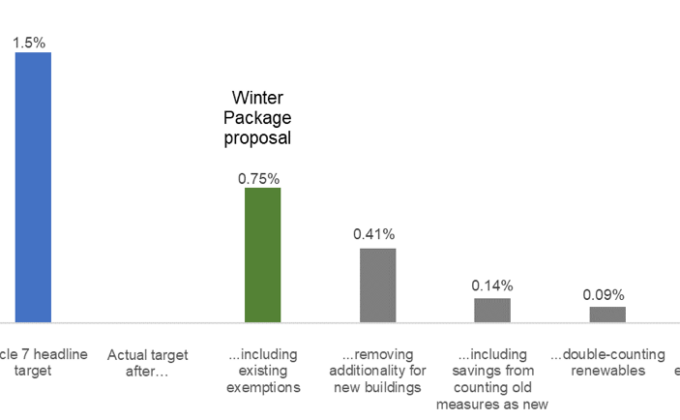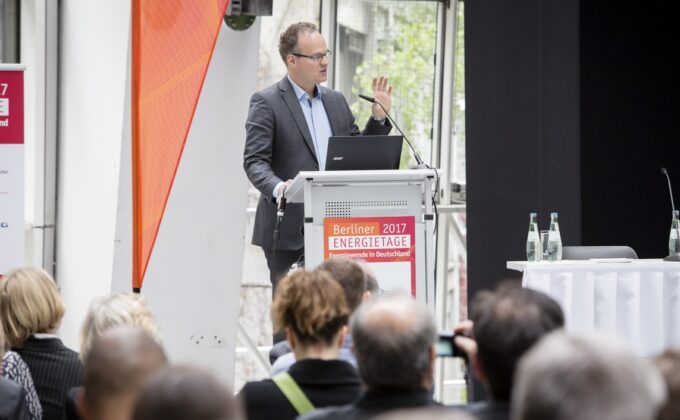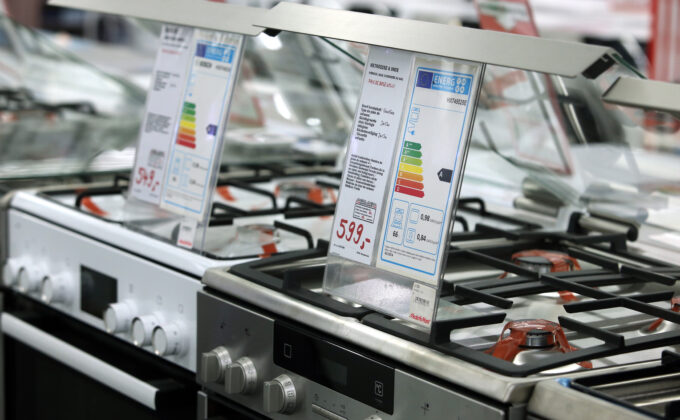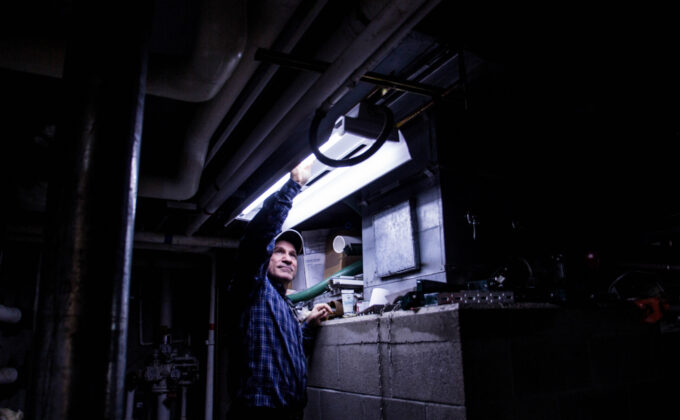Content Filter:
July 11, 2017
Blick über den Atlantik: Wie wird in den USA Energieeffizienzpolitik gemacht?
- Jan Rosenow ,
- Andreas Jahn ,
- Raffaele Piria
Deutschland hat sich ambitionierte Ziele zur Energieeinsparung gesetzt. Im Vorwort zum Grünbuch Energieeffizienz schreibt Sigmar Gabriel, damaliger Bundesminister für Wirtschaft und Energie: „Energieeffizienz ist ganz entscheidend für das Gelingen der Energiewende und die Umsetzung der Ergebnisse der jüngsten Klimakonferenz… View Summary +

June 19, 2017
European Council set to wipe out energy efficiency progress, leading to a decade of higher energy costs
Saving energy saves money, improves security, lowers emissions, and makes it easier to meet renewable energy and climate goals. That’s why energy efficiency is the sensible foundation for the Energy Union and the 2030 Clean Energy Package now under review:… View Summary +

May 18, 2017
Energieeffizienz im Winterpaket der EU-Kommission – wie ambitioniert sind die Pläne?
Die europäische Energie- und Klimapolitik steht an einem Scheidepunkt: Im Jahr 2020 enden die 20-20-20-Ziele, die eine Senkung der Treibhausgasemissionen um 20 Prozent vorsehen, die Erzeugung von 20 Prozent der Energie in der EU aus erneuerbaren Quellen und die Verbesserung der Energieeffizienz… View Summary +

March 13, 2017
Don’t Throw Out the Energy Efficiency Baby with the Brexit Bathwater
- Jan Rosenow ,
- Pedro Guertler ,
- Richard Cowart
Will Brexit put energy efficiency progress in the UK at risk, ask Jan Rosenow and Richard Cowart of RAP and Pedro Guertler of the Association for the Conservation of Energy? In electric appliances and heating systems—probably not. The biggest risk… View Summary +

December 15, 2016
How Europe can Deliver on Energy Efficiency
- Jan Rosenow ,
- Edith Bayer
The European Commission’s recently released Clean Energy Package, has a 2030 target of 30 percent energy savings. An important policy instrument to deliver these are Energy Efficiency Obligation (EEO) schemes. According to new RAP research, not only are EEOs a… View Summary +

December 9, 2016
Efficiency First: a New Paradigm for a Sustainable Energy System in the UK
The UK’s energy policy is at crossroads. Ambitious carbon targets, an aging energy infrastructure, rising fuel poverty, and a legacy of fossil fuel investment warrant bold political decisions to ensure the UK transitions to a sustainable low-carbon energy system. Because… View Summary +
November 21, 2016
Energy Efficiency: The Sweet Spot for Economic Stimulus After Brexit
Brexit has opened a new era in British politics. Economic uncertainties and a potential slowdown in investment are likely to stay with us in the short to medium term. The Chancellor has made clear that he is prepared to “reset”… View Summary +

November 14, 2016
Efficiency First: From Principle to Practice
New study presents real world examples of Efficiency First from across Europe The EU’s energy infrastructure faces numerous challenges over the next decades. It needs to be decarbonised whilst ensuring the competitiveness of EU industry, providing energy security, addressing energy… View Summary +
October 28, 2016
Germany Adopts “Efficiency First” Principle – Let’s Work to Make it a Reality
The German government recently published its Green Paper on Energy Efficiency and launched a consultation process inviting comments on the ideas put forward in the green book. RAP’s detailed response provides evidence and examples of the essential role that… View Summary +
October 6, 2016
Why the UK will Miss its Climate Targets Without a Step-Change in Building Energy Efficiency
- Jan Rosenow ,
- Pedro Guertler
The last 18 months have been a major set-back in the British policy landscape affecting carbon emissions from buildings: the trajectory to zero carbon new build has been paused; government support for Green Deal finance was withdrawn with no alternative… View Summary +
